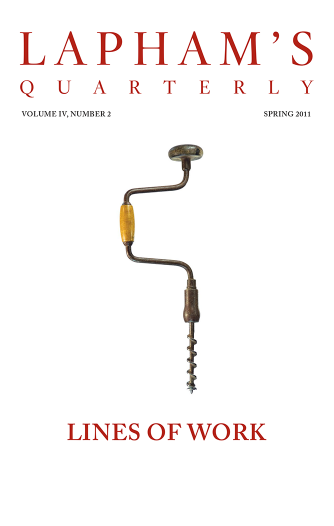I am sorry to say that the gravest threats against our national peace and safety have been uttered within our own borders.
There are citizens of the United States, I blush to admit, born under other flags but welcomed under our generous naturalization laws to the full freedom and opportunity of America, who have poured the poison of disloyalty into the very arteries of our national life; who have sought to bring the authority and good name of our government into contempt, to destroy our industries wherever they thought it effective for their vindictive purposes to strike at them, and to debase our politics to the uses of foreign intrigue. Their number is not great as compared with the whole number of those sturdy hosts by which our nation has been enriched in recent generations out of virile foreign stocks; but it is great enough to have brought deep disgrace upon us and to have made it necessary that we should promptly make use of processes of law by which we may be purged of their corrupt distempers. America never witnessed anything like this before. It never dreamed it possible that men sworn into its own citizenship, men drawn out of great free stocks such as supplied some of the best and strongest elements of that little, but how heroic, nation that in a high day of old staked its very life to free itself from every entanglement that had darkened the fortunes of the older nations and set up a new standard here—that men of such origins and such free choices of allegiance would ever turn in malign reaction against the government and people who have welcomed and nurtured them and seek to make this proud country once more a hotbed of European passion. A little while ago such a thing would have seemed incredible. Because it was incredible, we made no preparation for it. We would have been almost ashamed to prepare for it, as if we were suspicious of ourselves, our own comrades and neighbors! But the ugly and incredible thing has actually come about, and we are without adequate federal laws to deal with it. I urge you to enact such laws at the earliest possible moment and feel that, in doing so, I am urging you to do nothing less than save the honor and self-respect of the nation. Such creatures of passion, disloyalty, and anarchy must be crushed out. They are not many, but they are infinitely malignant, and the hand of our power should close over them at once. They have formed plots to destroy property, they have entered into conspiracies against the neutrality of the government, they have sought to pry into every confidential transaction of the government in order to serve interests alien to our own. It is possible to deal with these things very effectually. I need not suggest the terms in which they may be dealt with.
From his third Annual Message to Congress. Though he would win reelection in 1916 with the slogan “He kept us out of war,” Wilson began promoting involvement in World War I in 1915 after 128 Americans were killed in the Lusitania’s sinking. The New York Times’ coverage of this speech noted that both political parties got to their feet in approval of Wilson’s condemnation of “certain hyphenates,” referring at the time largely to German Americans. The Espionage and Sedition Acts, which granted broad powers of deportation, were soon introduced and became law.
Back to Issue



